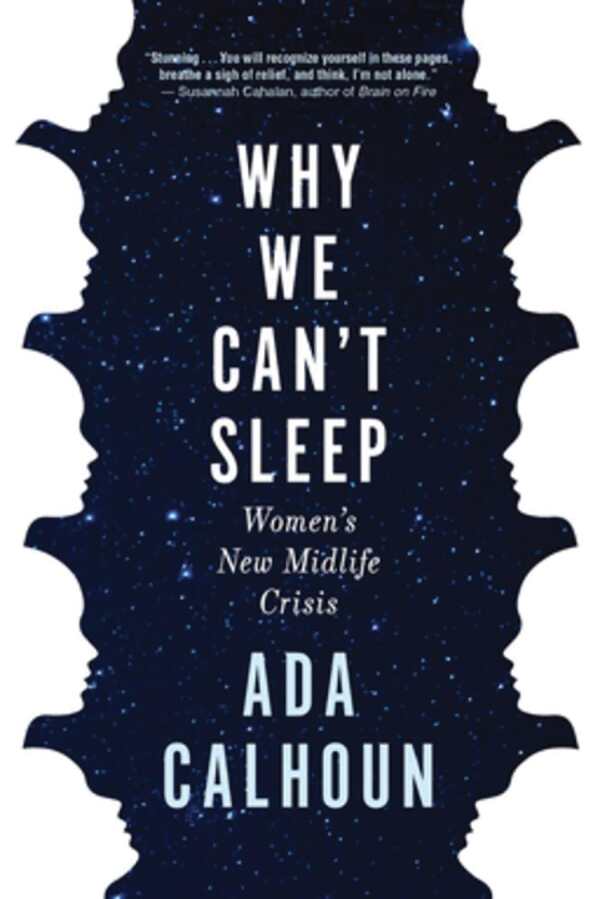Why We Can't Sleep
Women's New Midlife Crisis
Since turning forty, journalist Ada Calhoun has been obsessed with the women of Generation X and their “struggles with money, relationships, work, and existential despair.” Playing devil’s advocate in Why We Can’t Sleep, Calhoun posits: if there’s no reason why Gen X women should feel bad, then why do they?
“The context for Gen X is this,” she says: “We were an experiment in crafting a higher-achieving, more fulfilled, more well-rounded version of the American woman,” but she calls the experiment a failure. Gen X women grew up aware that they were vulnerable while being told they were infinitely powerful. When failure occurs in an environment they were told was limitless, they internalize it. But, as Calhoun demonstrates, the sources of women’s failures are sociological and cultural in scope; knowing this may make Gen X women’s middle years more bearable.
Calhoun limited her reporting by age and class, yet still spoke to over 200 middle-aged, middle-class women who mirror the nation’s demographics. While broad childhood and cultural experiences are more likely shared among Calhoun’s diverse, volunteer cohort, Calhoun’s reporting emphasizes some experiences over others, like parenting and heterosexual partnerships. It is still commendable in its complexity. Calhoun’s wrap-up synthesizes the entire exercise through her own lens and is pat by comparison.
The book coins a poignant term for the complex feelings that Gen X women have around middle age: “ambiguous loss,” or “a particular type of loss that is hard to define and lacks closure.” When there are massive gaps between expectations and achievement, and the sources of those gaps touch on almost every major affective factor of adulthood, it’s no wonder middle-aged women feel a loss so large that it seems impossible to pinpoint, and that sleeplessness comes from being unable to close the hole torn inside.
Reviewed by
Letitia Montgomery-Rodgers
Disclosure: This article is not an endorsement, but a review. The publisher of this book provided free copies of the book to have their book reviewed by a professional reviewer. No fee was paid by the publisher for this review. Foreword Reviews only recommends books that we love. Foreword Magazine, Inc. is disclosing this in accordance with the Federal Trade Commission’s 16 CFR, Part 255.

